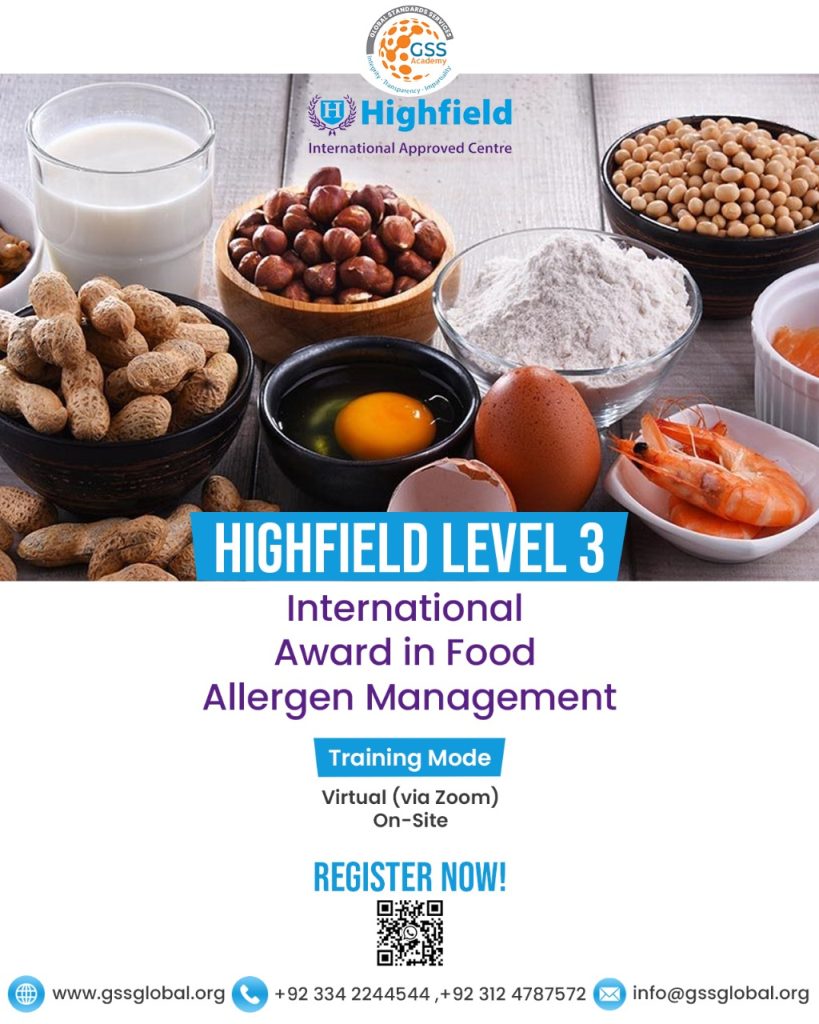Learning Outcomes: Participants will:
- Gain a comprehensive understanding of food allergens, their sources, and their impact on consumer health.
- Develop the ability to identify and manage food allergen risks within the food industry.
- Learn regulatory requirements and best practices for food allergen control.
- Enhance their skills in implementing allergen management plans and conducting risk assessments.
- Improve their capacity to communicate allergen risks effectively within the workplace.
Scope:
This course covers essential aspects of food allergen management, including the identification of allergens, legal and regulatory frameworks, risk assessment methodologies, and control measures. It is designed for food industry professionals, quality assurance personnel, regulatory compliance officers, and anyone responsible for food safety within their organization.
Learning Model:
The trainer uses up-to-date training techniques and a variety of training methods, to give all participants the best opportunities for learning, including: Lectures, Tutorials, Class Sessions, Group Discussions, Interactive Workshops, Simulations Exercises, Case Studies, Individual Assignments, Templates and Tools
Assessment:
Multiple choice questions based exam
Course Content:
- Introduction to Food Allergens
- Regulatory Framework and Compliance
- Risk Assessment and Hazard Analysis
- Food Allergen Management and Control Measures
- Communication and Training
- Practical Application and Case Studies

